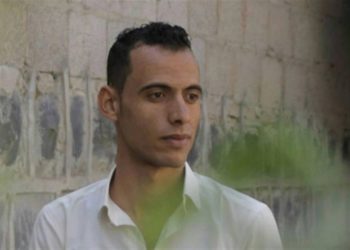WASHINGTON — When Attorney General Jeff Sessions denounced the violence in Charlottesville, Va., as an “evil” act of domestic terrorism on Monday, he was in some ways an unlikely figure to emerge as one of the most prominent voices in the Trump administration on the issue.
Though he is the nation’s chief law enforcement officer, Mr. Sessions, an outspoken Alabama conservative, is viewed with mistrust by many civil-rights advocates concerned about his ambivalence over expanding protections for minorities.
But he has stepped outside that mold in aggressively responding to the deadly car attack by an apparent white nationalist sympathizer on anti-racism protesters in Charlottesville, announcing a federal civil rights investigation within hours and labeling the attack an act of domestic terrorism during a string of television appearances on Monday.
“You can be sure we will charge and advance the investigation toward the most serious charges that can be brought, because this is an unequivocally unacceptable and evil attack that cannot be accepted in America,” Mr. Sessions said on ABC’s “Good Morning America.”
The steps he has taken, which stood in stark contrast to President Trump’s fitful responses, dovetailed with his law-and-order image and earned cautious praise from civil rights advocates.
Kristen Clarke, the president of the liberal Lawyers’ Committee for Civil Rights Under Law, called Mr. Sessions’s moves a “step in the right direction,” although she was reluctant about giving him “too much credit” at this early stage of the case.
“This marked somewhat of a turning point,” she said. “We are seeing Sessions suggest to the public that when hate violence unfolds, the Justice Department will respond swiftly. Only time will tell whether he truly means that.”
The attorney general may yet conclude that justice would be better served by prosecuting the case in state court in Virginia, which has the death penalty. Legal experts warned that the facts of the Charlottesville attack may not fit into existing federal criminal statutes, depending on what evidence is unearthed.
Mr. Sessions, who served as a senator from Alabama for two decades before being sworn in as attorney general in February, has long been skeptical of hate-crimes laws that create federal jurisdiction over certain assaults and murders.
When Congress was considering in 2009 whether to expand the hate-crimes statute to cover people targeted because of their sexual orientation or gender identity, Mr. Sessions opposed the bill, questioning “why we need to have the federal government take over prosecutions that they have not taken over before.” Generally, crimes of violence are handled by state courts.
Still, as attorney general, Mr. Sessions has vowed to enforce hate-crimes laws, and the Justice Department has brought several such cases during his six-month tenure. Three Texas men were accused of conspiring to lure gay men with a dating app and then attack them, and another Texas man was charged in an arson attack on a mosque.
Some allies of Mr. Sessions contended that his moves in the Charlottesville investigation should not be surprising because they fit within his strict approach to law enforcement.
“Based on my 20-plus years of interacting with him, I’m not surprised at all,” said James O. Pasco Jr., the former executive director of the Fraternal Order of Police and now a senior adviser to its president. “Overshadowing his ideological bent is his reverence for the law, and when there’s obvious probable cause that a violation of law has occurred, Jeff Sessions is not going to shrink back into the woodwork.”
But Mr. Sessions appears to be more willing to aggressively enforce the law in cases involving prosecuting individual crimes than broader civil-rights issues, said Vanita Gupta, the president of the Leadership Conference on Civil and Human Rights and head of the Justice Department’s civil rights division during the Obama administration.
“The problem is, he’s completely unwilling to address systemic problems,” she said. “On those issues, he has had a decidedly anti-civil rights agenda.”
On Mr. Sessions’s watch, the Civil Rights Division has changed its position on whether Texas’ strict voter-identification law was discriminatory, pulled back from using consent decrees to reform troubled police departments and launched a project to scrutinize affirmative action practices in university admissions.
How Mr. Sessions’ approach to the Charlottesville investigation will fit into his emerging record remains to be seen. An open question, legal experts said, is whether federal prosecutors will conclude they have enough of a legal rationale to federalize the prosecution of the suspect in the car attack, James Alex Fields Jr., who was denied bail on Monday in his first court appearance.
Not all crimes motivated by hate are covered by the federal hate crimes law. The statute gives prosecutors the opportunity to bring a case if a defendant attacked a victim because of certain characteristics, such as his or her actual or perceived race, religion, national origin, ethnicity, gender or sexual orientation.
Hatred of people because of their political views is not mentioned in the law. And though several of the surviving victims are black, the crowd was a mix of races and the woman who died, Heather D. Heyer, was white. Investigators will be looking for concrete evidence that Mr. Fields steered his car into the crowd because minorities were present, as opposed to people with anti-racist views.
Mr. Sessions’s pronouncement that the attack falls under the federal legal definition of “domestic terrorism” also may carry more symbolic value than legal substance because that label is not a stand-alone federal crime that can be charged.
As a result, the high-profile federal law enforcement investigation may end up functioning more as a demonstration of seriousness in the short term and as a potential backstop if something were to go wrong in the state courts — such as when federal prosecutors charged the South Carolina police officer videotaped shooting a black man in the back after a state prosecution ended in a mistrial — than as the primary means to bring Mr. Fields to justice.
The inquiry also brings federal resources to bear in helping the Charlottesville police department investigate the case even if the evidence is ultimately brought in state court. On the day of the attack, for example, F.B.I. agents were already conducting witness interviews in Ohio, according to an official familiar with the investigation.
Brian Levin, the director of the Center for the Study of Hate and Extremism at California State University, San Bernardino, said that Mr. Sessions had already accomplished something by speaking out.
“It’s interesting that the Justice Department rather than the president is leading this, not only operationally but rhetorically as well,” he said. “The bully pulpit makes a difference with respect to the number of hate crimes that occur. Words matter.”







